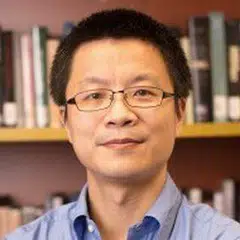
Qian Jiwei
Senior Research Fellow, East Asian Institute, National University of Singapore
Qian Jiwei is Senior Research Fellow at the East Asian Institute, National University of Singapore. He is also a co-editor of the book series Social Policy and Development Studies in East Asia (Palgrave Macmillan). He obtained his BSc in computer science from Fudan University, China and a PhD in Economics from the National University of Singapore. His research on health economics, health policy and social policy has been published in several leading journals. He is also on the editorial board of the journal 'China: An International Journal and East Asian Policy'. His recent co-edited book is Development and Poverty Reduction: A Global Comparative Perspective (2019). His current research interests include political economy, development economics and health economics.